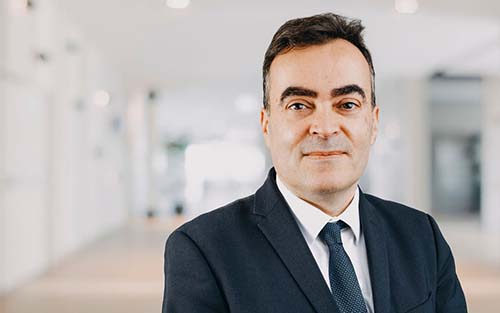Once considered damaging for fund manager reputations, liquidity management tools – such as redemptions on restrictions – have gained further acceptance amid the Covid-19 crisis. And what’s more, these tools have slowed the spread of market contagion, says Xavier Parain, CEO of FundRock Management Company.
The Covid-19 crisis has changed so much about daily and commercial life – and the fund management industry is no exception. Business continuity plans and procedures – tested more frequently than ever implemented in the past – have been deployed universally. Portfolio managers, risk officers, due diligence professionals and others immediately and seamlessly transitioned to working from home, crucially, without any major impact for investors.
This crisis has caused a rethink on redemption restrictions and other liquidity management tools. As the global financial crisis (GFC) of 2007-2008 reminded us, a “run” on a financial institution takes different forms and frequently occurs hidden from public sight. When hundreds of investment funds imposed restrictions on withdrawals, it caught many off guard, including policymakers, regulators and many investors. In 2006, only 4% of hedge fund managers enacted discretionary liquidity provisions such as side pockets or gates, but by 2009 that number had risen to around 30%. The practice had become commonplace and affected thousands of large and small investors around the world.
The perceived lack of transparency around some of these decisions contributed to a sense that their imposition – at short notice, seemingly without warning – was inappropriate, even controversial. That this helped to mitigate systemic risks and stabilise markets was frequently overlooked. Fund managers that deployed these tools faced reputational risks and some struggled to rebuild their businesses after the markets recovered.
An emergency caused by a virus and a government shutdown is clearly not the same as the GFC. As in 2007, this year’s crisis initially saw extraordinary levels of financial market volatility, which contributed to the quickest global bear market in history. And as in the GFC, short selling was temporarily banned in certain jurisdictions and a number of funds restricted redemptions, albeit temporarily.
However, the regulatory regime is different. Far from outlawing liquidity management tools, since the GFC regulators have encouraged fund managers to develop and be willing to use them, but always to be transparent with investors when doing so.
We see evidence of deployment
As recently as last September, the European Securities and Markets Authority (Esma), the EU’s securities markets regulator, published guidelines on liquidity stress testing for EU-domiciled mutual funds and alternative investment funds such as hedge funds and private equity funds. The guidelines, based on globally agreed principles developed in the aftermath of the GFC, set out a mechanism by which managers regularly test the resilience of their funds to different types of market risks – including for liquidity risk – and report their findings and actions to their national authorities. While the deadline for complying with the new guidelines is not until later this year, many fund managers have already implemented measures in response to Covid-19.
We are seeing evidence of deployment. Some managers have activated fund gates temporarily to facilitate the accurate valuation of assets. Others have used redemption deferrals, usually by no more than a few days, to allow more time for portfolio managers to liquidate assets when trades are proving difficult to execute.
The crisis has also been a reminder of how rapidly liquidity costs such as bid-ask spreads can widen and how it is more important than ever to monitor for these. For liquid assets such as equities, in normal market conditions these hidden costs fluctuate in line with market volatility. Yet while liquidity costs roughly doubled in Q1 of 2020, in line with the increase in stock market volatility, liquidity costs continued to rise in Q2 even though market volatility declined. This suggests that we should not be completely reassured by the dampened volatility of recent weeks and that managers are still finding it more difficult and expensive than before the crisis to find buyers, unwind positions and settle trades. Accurate monitoring of the true liquidity of the fund assets remains essential in order for fund managers to ensure an appropriate and effective response to the ebbs and flows of investor activity in times of extreme uncertainty.
The long-term impacts of these and other dislocations are still to be judged. We are still only in the early stages of this crisis and should be prepared for further shocks. But markets, managers and regulators have improved the tools at their disposal, from improved technology to sophisticated liquidity monitoring and management infrastructure – and appear much better placed to mitigate the risks of an even deeper crisis.
*Xavier Parain is CEO of FundRock and was previously managing director within the asset management directorate at the Autorité des Marchés Financiers (AMF), the French financial markets regulator
© 2020 funds europe





